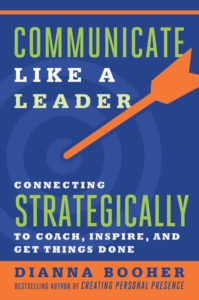


Words matter. At least, attorneys, auditors, and authors say they do—and earn a living proving it. The three “A” words that have become meaningless in our conversations lately? Awesome. Amazing. Absolutely. All three elicit a virtual red pen.
Yes, I taught senior English two years before I published my first book and started my career as a communication consultant and author. In our Cypress-Fairbanks school district, the curriculum called for several assignments for students to write essays without using any form of the verb “to be.” That is, these seniors had to write a 500-word essay without relying on these bland verbs: am, is, are, was, were, The goal: helping the student-writers to think and write with precision.
Instead of seeing them write, “Jack was walking along the highway,” we teachers wanted them to think in colorful terms: “Jack ambled along the highway.” Or: “Jack shuffled along the highway.” Or: “Jack raced along the highway.” “Jack darted in and out of traffic on the highway.” You get the idea.
So you can see why “amazing,” “awesome,” and “absolutely” no longer get attention—or even make sense in most utterances.
Email #1: “Several of our key competitors had a tradeshow booth at the conference this year.”
Email Response: “Amazing! I noticed that in the pre-conference announcements.”
Really? Amazing? My dictionary defines the word this way: “causing great surprise or wonder, astonishing.” But since so many have “downsized” the meaning during the last decade, the Oxford dictionary now adds this “informal” usage as an entry: “Startingly impressive.”
Even with the informal downgrading, have you noticed how “amazed” people are at the most common occurrences?
Email #1: “I should have my quarterly report finished by Friday. I’ll copy you when I submit it.”
Email Response: “Awesome!”
Is the responder inspired with great admiration? Fearful? Extremely impressed?
Again, the dictionary definition here: “extremely impressive or daunting; inspiring great admiration, apprehension, or fear. The example given: “The awesome power of the atomic bomb.”
Whatever happened to a simple “good,” “well done,” or “thank you”?
Email #1: “With two of our team on vacation, are we still having a staff meeting on Monday?”
Email Response: “Absolutely.”
Once again, I defer to the dictionary definition: “With no qualification, or limitation; totally.” The dictionary example provided: “She trusted him absolutely.”
The response above seems like an extreme reaction. Does the responder really mean, “Without qualification, we are meeting! Why on earth would you think we are NOT meeting? Have you lost your mind in even asking the question?”
More likely, the responder meant simply, “Yes.”
If you’re tired of these cliched reactions, I’m with you. Words matter for accuracy and attitude. And when words no longer matter, maybe we should just shift to drawing pictures like the cavemen or just adopt an alphabet of icons.
I don’t know about you, but I’m giving these three “A” words a big fat “F.”
Learn more ways to choose the right words to lead and inspire with Communicate Like a Leader: Connecting Strategically to Coach, Inspire, and Get Things Done
